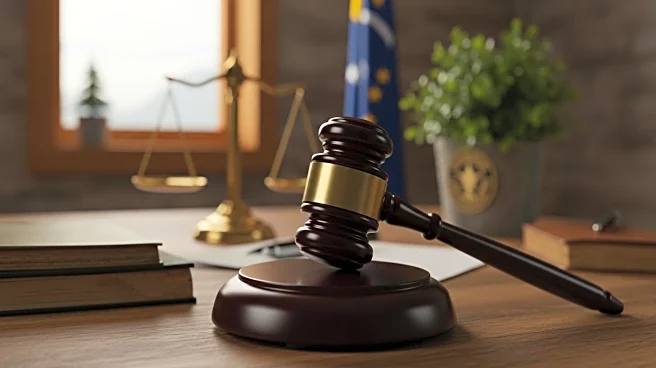What is the story about?
What's Happening?
Governor Mike Dunleavy of Alaska is facing opposition from legislative leaders over his executive order to establish an agriculture department. Lawmakers, including Senate President Gary Stevens and House Speaker Bryce Edgmon, argue that the order is unconstitutional and should be addressed through a standalone bill rather than an executive order. The dispute has led to discussions of a potential lawsuit to resolve the issue. The executive order was introduced during a special session focused on education, but the agriculture department proposal has been a recurring agenda item. Legislative leaders have previously rejected a similar order, citing constitutional grounds and procedural concerns.
Why It's Important?
The conflict between Governor Dunleavy and the Alaska legislature highlights the tension between executive authority and legislative oversight. If the executive order is enacted without legislative approval, it could set a precedent for future governors to bypass legislative processes, potentially undermining the checks and balances within the state government. The establishment of an agriculture department could have significant implications for Alaska's agricultural industry, affecting policy, funding, and regulatory frameworks. The outcome of this dispute may influence how executive orders are handled in future legislative sessions, impacting governance and political dynamics in Alaska.
What's Next?
The legislature is set to reconvene on August 31, just before the special session's deadline on September 2. If no action is taken by the legislature, Governor Dunleavy's executive order may become law, according to his interpretation of the constitutional provisions. This could lead to a legal battle to determine the validity of the executive order and clarify the constitutional requirements for such actions. The resignation of Attorney General Treg Taylor adds uncertainty to the situation, as his legal opinion could have influenced the proceedings. The legislature's response and potential court involvement will be crucial in resolving this constitutional dispute.















